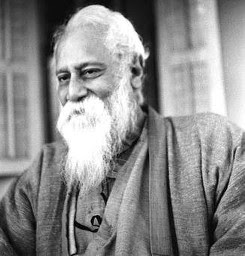Tagore@2018

Today is the Birth Anniversary of Rabindranath Tagore. Tagore was the first global Literary Superstar, the first Nobel Prize Winner from Asia, whose flowing robes and the white beard helped form the public image of an Indian sage on the global stage. It is somewhat peculiar what Tagore is now known for. Given that many people reading this blog wouldn't know his name, I had to mention his Nobel prize. Yet, Tagore was somewhat resentful - and said so when he was facilitated in Calcutta after receiving the prize - that his countrymen would only recognise him only after the West had given him an award. The alternative way to tell who he was - that he was the man who wrote the National Anthem of India, as well as of Bangladesh - is equally problematic: Not just this brings up an old controversy (see An Exceptional Man ) but, at least in case of India, reminds one of a Cosmopolitan Republican Nationalism that the current Indian government so love to hate. Going by th...

